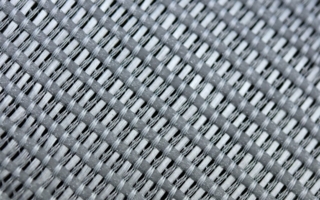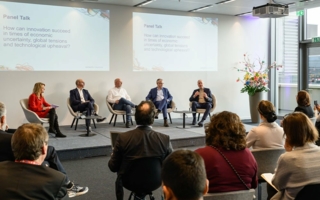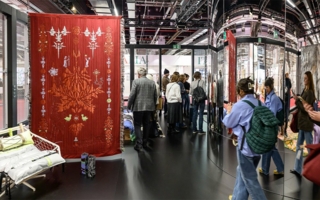20/06/2019 – Neonyt — auf Deutsch lesen
Progressive approaches
What could environmentally friendly, water-saving jeans production look like?
“It’s high time for the fashion industry to take a more holistic and consistent approach to the subject. And that applies in particular to the resource-intensive denim industry,” says Thimo Schwenzfeier, Show Director of Neonyt. “We bring companies together that have developed innovative production processes and visionary solutions, and are therefore accelerating a more sustainable development of the fashion industry.”
Denim: an ever-popular icon with water-intensive production
The indigo fabric is one of the worst offenders of environmental damage. Especially with regard to the limited and increasingly scarce resource of water. The water consumption of conventional jeans production is immense. It takes up to 7,000 litres of water to produce a single pair of jeans. This figure results from the different production steps: starting with the water-intensive cotton cultivation in often very dry regions, which accounts for the majority of denim’s total water footprint. In addition to this, fertilisers and pesticides are used and their production consumes considerable amounts of water and also pollutes the groundwater. This is followed by the wet processes of dyeing, washing and finishing the fabrics, the core problem of the denim industry. After all, the chemicals that give the jeans their desired look have to be washed out in numerous washes. In the producing countries, the untreated wastewater is often disposed of in the environment due to the lack of sewage treatment plants. The World Bank estimates that textile dyeing and treatment contribute up to 17 to 20 percent of total industrial water pollution.
Water – an increasingly limited resource
Just how important it is to protect the resource of water and to initiate change in the fashion industry is shown by the figures of the UN’s 2019 World Water Development Report: global water consumption is rising continuously. Due to population growth, new consumption patterns and climate change, the availability and quality of water are currently changing drastically.
2.1 billion people worldwide currently have no access to clean and continuously available drinking water. And worldwide there are more than two billion people living in countries with high water stress. This means that more than a quarter of renewable water resources are used in these countries. 22 countries even use more than 70 percent, including for example Egypt or Pakistan – where the cultivation of cotton, for example, requires huge amounts of water.
Neonyt is showcasing new, innovative options
How can the fashion industry, in particular the denim sector, minimise its global impact on water consumption and contamination and actively contribute to preserving this vital resource? How can chemicals be avoided? How can water consumption be reduced? Which recycling methods offer new solutions? Neonyt is presenting an array of progressive companies that are exploring new directions in denim production and developing versatile solutions – from water-saving organic cotton cultivation to chemical-saving dyeing processes and alternative procedures like laser technology instead of bleaching with chlorine, down to innovative water treatment plants and denim made of recycled materials.
Denim panel in cooperation with Textile Exchange
Coinciding with the Neonyt Trade Show, high-profile speakers will be presenting best-practice examples and discussing solutions at the adjoining Fashionsustain conference – for example on 3 July 2019 during a discussion panel by the non-profit organisation Textile Exchange with international experts from the denim industry. And so for all things fashion, sustainability and innovation, Neonyt is set to become a central hub for solution-oriented dialogue and concrete action once again.
Neonyt – Global Hub for Fashion, Sustainability and Innovation
2.–4. Juli 2019, Berlin





